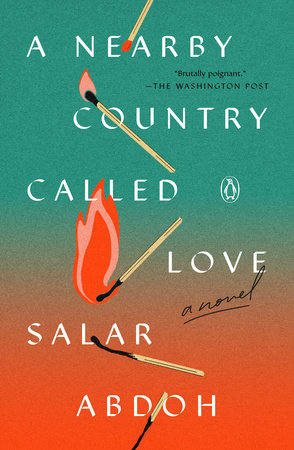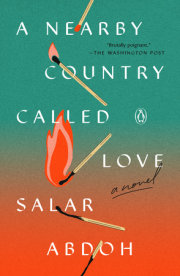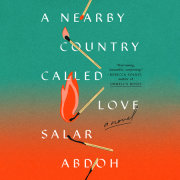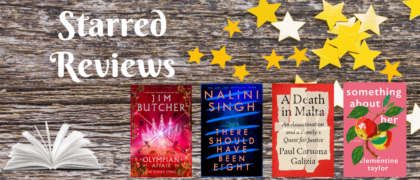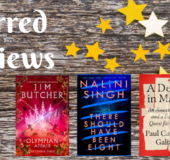Shortlisted for the 2024 William Saroyan International Prize for Writing
“A complex portrait of interpersonal relationships in contemporary Iran. . . . A Nearby Country Called Love raises the possibility that love—or more vitally, connection—can still be forged in a difficult world.” —The New York Times
“Brutally poignant.” —The Washington Post
“Through his sympathetic antihero, Abdoh gives us a rare, eye-opening look at people who rebel against authority simply by being their authentic selves.” —Star Tribune
“Remarkable . . . recounted with a sort of bewilderment and tenderness that suggest the modern world has made unfathomable misfits of us all.” —Foreign Affairs
“Once I glanced at this book I couldn’t stop reading, staying up late to gallop through this harrowing, beautiful, surprising novel in one evening. It is an evocation of characters I came to care about, a portrait of everyday life in contemporary Iran, and a profound depiction of gender roles as prisons, and of who escapes these prisons at what cost.” —Rebecca Solnit, author of Orwell’s Roses
“Salar Abdoh’s novel takes us to Iran, with its furies and contradictions—but more importantly, it takes us to the perilous borderland between men and women. His generous story suggests that those of us who live in these worlds—Iranians, Americans, men, women—might yet find solace and peace and love.” —Jennifer Finney Boylan, author of She’s Not There: A Life in Two Genders and (with Jodi Picoult) Mad Honey
“Abdoh offers a moving and nuanced study of gender and sexuality in contemporary Iran. . . . It’s an artful rendering of hope amid despair.” —Publishers Weekly
“A poignant dark, dark dramedy exposing the elusive, performative nature of never quite true love.” —Booklist
“An emotionally complex narrative anchored by a protagonist who’s deeper than he seems.” —Kirkus Reviews
“Sad, hilarious, bighearted.” —BookPage
“An inquiry into manhood, and the loneliness (and sometimes delusion) that hollows men out. . . . Just as Tehranis defy easy categorization, here too they display their capaciousness, their capriciousness.” —Electric Literature
“Salar Abdoh’s brutal and beautiful A Nearby Country Called Love recalls the ancient struggles between love and strife, duty and desire, destiny and will, passed down by Persian storytellers of old. The novel’s setting is a modern Iran in the grip of the Islamic State, but its landscape is the human heart, which—regardless of country or faith—wants what it wants. This drama, this play, really, is a tragedy of loves placed in a crucible of unrequited love, each emerging unexpectedly new, if not entirely whole again. Salar Abdoh knows well the perceived abyss that exists between the lands of East and West, one as wide as the distance between strangers and brothers, hatred and tenderness. And yet, from that place, he has given us a modern classic.” —Andrew Krivak, author of Like the Appearance of Horses and The Bear
“Reading this book was almost like encountering a magic trick, but without any of the sleight of hand of a stage show. Instead of lights and shimmering capes, Salar Abdoh uses nuance, care, and remarkably vivid language to make this story billow from something at first seemingly small—a story about two Iranian friends navigating their complicated masculinity and facing their impacted anger—into an ever-expanding, wildly hopeful tale of love in the wake of trauma. Abdoh is at once honest and encouraging in this portrait of contemporary relationships, conjuring a story that shows us how to build chosen families and honor blood ties despite and through the violence of modern life.” —Emily Nemens, author of The Cactus League
“With boldness and wit, Salar Abdoh pierces the veneer of machismo and religiosity in the Islamic Republic to reveal the raw despair of individuals leading double lives and disavowing their bodies and desires to suit the absurd dictates of the state. A powerful novel that explores how language, poetry, and love—in all their imperfect manifestations—can crack a nation’s inheritance of perpetual violence.” —Dalia Sofer, author of Man of My Time
“With a singular brilliance, wit, and lyricism, Salar Abdoh takes us into his confidence to illustrate that our lives are not repeated patterns of commonplace existence, but rather overflowing with unexplored rooms in our wayward, lovesick hearts. This is a classic work of a serious, firmly disciplined writer whose heroes are love and compassion.” —Ernesto Quiñonez, author of Bodega Dreams
“Astonishing and intense, A Nearby Country Called Love is a story of two brothers on opposite sides of the sexual identity divide, their destinies played out in an intergenerational tragedy of moral and cultural errors only possible in contemporary Iran. No novelist writing in English has better captured the weirdness, lies, and occasional transcendence of the Islamic Republic than Salar Abdoh, or delivered a tale turning on the unintended consequences of fatwa-approved sex-change operations leading to the range of trans characters tenderly observed here. My high praise: Abdoh’s novel is as good and poetic as the best indie neorealist films coming out of Iran.” —Brad Gooch, author of Rumi’s Secret: The Life of the Sufi Poet of Love
“Salar Abdoh writes masterfully against toxic masculinity in this intimate novel. I fell in love with his characters as they seek to cultivate tenderness in a culture of violence, and you will too.” —Emily Raboteau, author of Searching for Zion
“Salar Abdoh has traveled to the limits of the expressible in the Middle East. In treating the violence and injustice done to so many, he also elegantly fuses the classics of Arabic and Persian literature in order to write a meditation on love that is at once intensely of our time yet utterly transcendental.” —Nouri Al-Jarrah, author of A Boat to Lesbos

